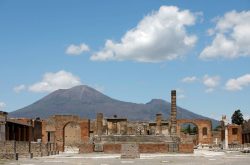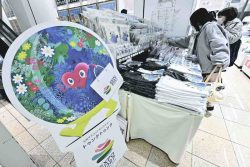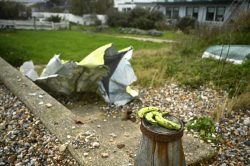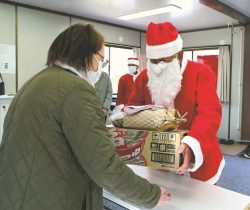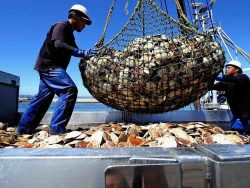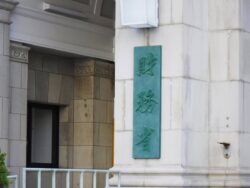As Super Bowl Approaches, Game-Time Guacamole Affected by Fewer Avocado Shipments from Mexico
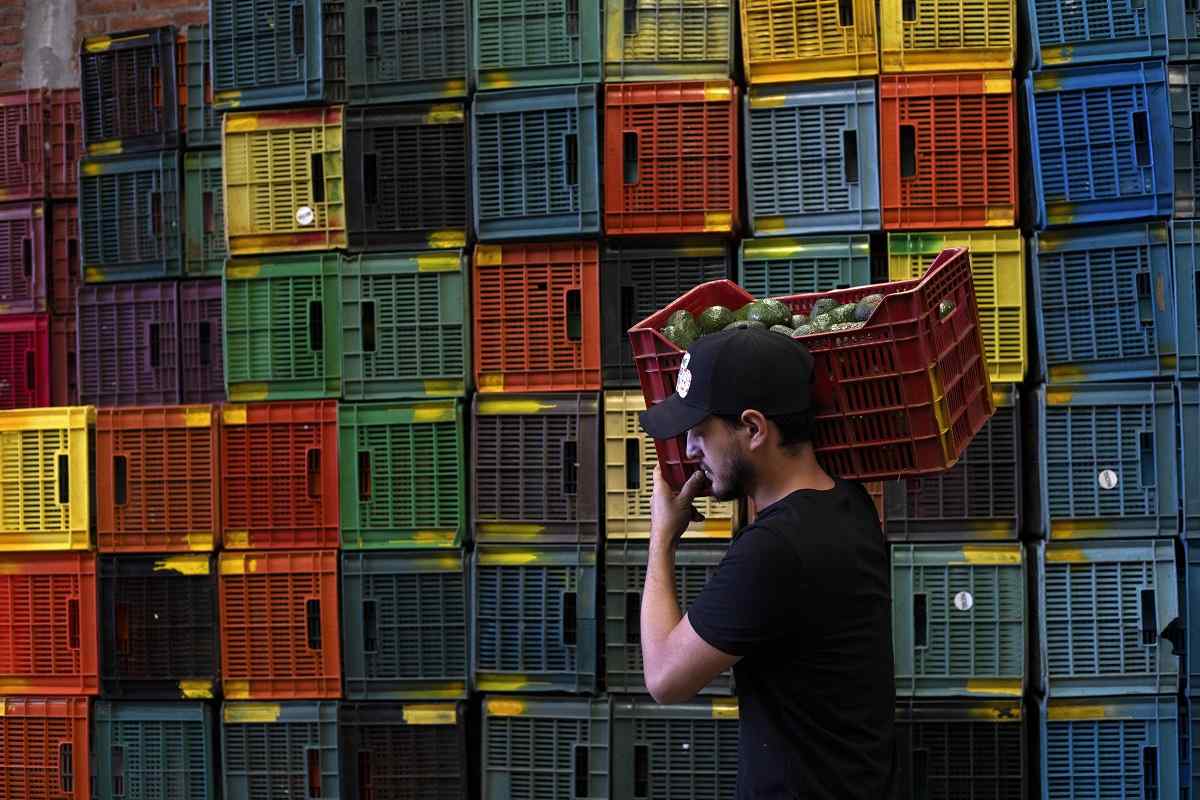
A worker carries a crate of avocados at a plant in Uruapan, Michoacan state, Mexico, Friday, Feb. 9, 2024.
17:20 JST, February 11, 2024
MEXICO CITY (AP) — As the Super Bowl approaches, there could be problems for guacamole, a favorite game-time food in America: A lack of rain and warmer temperatures has resulted in fewer avocados being shipped from Mexico.
The western state of Michoacan, which supplies almost 90% of the creamy textured fruit for the big game, has suffered a hotter, drier climate that has led to a lack of water in growing areas.
Lakes in the state are literally drying up: Desperate avocado growers send tanker trucks down to suck up the last water, or divert streams, to feed their thirsty orchards, sparking conflicts. The state received about half the rain it normally gets last year, and reservoirs are at about 40% of capacity, with no rain in sight for months.
Meanwhile, some growers are illegally cutting down pine forests that feed the water system to plant more avocados. To top it all off, a nother American obsession — tequila — is starting to cause problems too.
The whole situation is not good for avocados. Last year, avocado exports from Michoacan for the Super Bowl grew by 20% to 140,000 tons. This year, that number actually declined by 2,000 tons, despite increased planting; meaning fewer of the creamy textured fruit in U.S. produce departments. Alejandro Méndez, the state secretary of the environment, estimates 30% of avocado orchards in Michoacan are now water-stressed.
Something’s got to give, and with consumers demanding more environmentally conscious produce, state officials are finally putting together a sustainable certification program.
The certification program would presumably result in growers improving their water use, enabling them to offer consumers both greener avocados and more of them.
Coming soon to a grocery store near you: fruit with a sticker saying something like “this avocado wasn’t grown on deforested land,” or “this avocado used water responsibly.”
Officials are still working on a catchy slogan for the greener avocados. But given that it’s coming from the same people who brought you years of Super Bowl ads about avocados from Mexico, a catchy slogan is highly likely.
“The idea is that there is going to be a certification sticker with a QR code that you can scan with your telephone, and that link will take you to a page with a satellite photo of the orchard … and the forest associated with the orchard,” said Méndez.
Because they use more water than pine forests, growers will have to contribute to a fund that ensures several acres of forest are preserved for each acre of orchard.
“So with that orchard, you can be assured the dollar you paid for this avocado is going to preserve this piece of forest,” said Méndez, who estimates about 70% of the orchards in place before 2011 were planted on old farmland, not forests. But the remaining 30% give the rest a bad name, he complains.
The decision to act comes not a moment too soon. The Center for Biological Diversity said Thursday that more than 28,000 people have signed an online petition calling on grocery chains to adopt more sustainable avocado-sourcing policies.
“Many people in Mexico have lost their forests and water because of the 304 million pounds of avocados we’ll be eating on Super Bowl Sunday,” said Stephanie Feldstein, the center’s director for population and sustainability. “Our obsession with avocados has a horrific hidden cost. It’s time for grocery chains to take responsibility and make sure they’re not buying avocados grown in deforested areas.”
Up to now, there hasn’t been much consumers could do. There are few certified sustainable avocados available year round on the market, and if you want guacamole, there’s not much else you can use. That’s despite all the news coverage about how avocado growers and packers have to pay protection money to drug cartels.
Julio Santoyo, a front-line anti-logging activist in Villa Madero, Michoacan, says he’s taking a wait-and-see attitude toward the new certification program. Until then, Super Bowl this year — like every year — was “a kick in the pants,” he said.
“The growth in illegal orchards continues unabated,” Santoyo said. “We assume that more than half of the avocados consumed around the Super Bowl are from illegal planting.
“Up to now, the Mexican government has not taken practical steps to certify environmentally sustainable avocado production,” he said.
The crisis is clear in the once heavily forested, lake-dotted state. Lake Cuitzeo, Mexico’s second largest, was once a vast sheet of water reflecting blue skies near the state capital; it is now about 60% dry, exposing kilometers (miles) of dry ground and grass.
And poor Michoacan faces new threats from U.S. consumers: Part of the state next to neighboring Jalisco is certified to grow the blue Weber agave, the only plant from which true tequila can be distilled.
While agave likes drier, hotter, poorer soils than avocados, growers are still cutting down native scrub and low, thorny woods to plant the spikey-leafed seedlings, whose barrel-like centers will later be cooked down and fermented.
It’s a relatively new problem, fed by rising demand for tequila.
“In the last two years, the price for a kilo of agave went up a lot, it went up to almost 35 or 40 pesos per kilo (about a dollar per pound),” Méndez said.
“We have 50 million agave plants,” he said. “It’s grown a lot, and we have started to see deforestation as well in that area.”
"News Services" POPULAR ARTICLE
-

American Playwright Jeremy O. Harris Arrested in Japan on Alleged Drug Smuggling
-

Japan’s Nikkei Stock Average as JGB Yields, Yen Rise on Rate-Hike Bets
-

Japan’s Nikkei Stock Average Licks Wounds after Selloff Sparked by BOJ Hike Bets (UPDATE 1)
-

Japanese Bond Yields Zoom, Stocks Slide as Rate Hike Looms
-

Japan’s Nikkei Stock Average Buoyed by Stable Yen; SoftBank’s Slide Caps Gains (UPDATE 1)
JN ACCESS RANKING
-

Keidanren Chairman Yoshinobu Tsutsui Visits Kashiwazaki-Kariwa Nuclear Power Plant; Inspects New Emergency Safety System
-

Imports of Rare Earths from China Facing Delays, May Be Caused by Deterioration of Japan-China Relations
-

University of Tokyo Professor Discusses Japanese Economic Security in Interview Ahead of Forum
-

Japan Pulls out of Vietnam Nuclear Project, Complicating Hanoi’s Power Plans
-

Govt Aims to Expand NISA Program Lineup, Abolish Age Restriction








